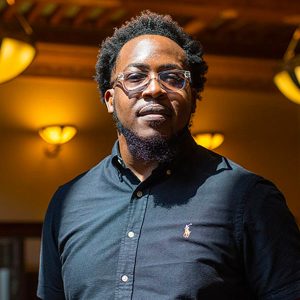Originally published in the February issue of the Notes on Antiracism, Justice, and Equity newsletter.

First and foremost, Happy Black History Month! It is important for me to lean into the celebration of Blackness because self-love is of the utmost importance in the times we are living in. I love Black people and all our nuances: our strength and our melanin, our resilience and our ability to create joy. I love Black laughter and Black smiles, which are things that we all experience. Black people deserve to give and receive love that is brilliant and unconditional – the love of a parent, a partner, a sibling, or a friend. We all desire to both love and be loved in this way; we all desire to be seen. I hope that everyone can see the hearts of Black people and find connection, familiarity, and understanding and learn to lean more into love as a way to resist the negativity we all must navigate.
On February 2, 2022, Amir Locke was killed by members of the Minneapolis Police Department (MPD). Minneapolis was literally on fire during the spring of 2020 following the murder of George Floyd and yet we find ourselves having to navigate our feelings, again, around the murder of a Black person at the hands of the police.
I notice that when this happens now, communications flow—from email statements to social media posts to radio programming—that bring injustice to the forefront, provide resources for healing, and remind Black people that our joy is threatened far too often. I wonder if I should be concerned that we now have such a familiar communications process around continued injustice, or if I should be gratified with the recognition and noise-making. Something I did appreciate was the statement from the SPH Center for Antiracism Research for Health Equity (CARHE) and the care that was taken with their words, including the reminder that Black people are loved. I felt held and valued as a Black man, and also empowered to continue to resist systemic injustice.
I stopped being sad and angry about police violence towards Black bodies a long time ago. I have decided to focus on my own peace, happiness, and joy as my way of finding freedom. So how do we still have joy? How do we still live our authentic lives despite the threats to our bodies? We dance! We sing! We create and prophesize the futures we will manifest! We commune with our ancestors. We empower each other, our siblings, and our neighbors. And we resist. Resist the idea that Black folks are only sad people with sad stories; resist any attempt to steal the joy we have died to have.
Research shows that joy has a direct impact on our health—emotionally, socially, and even physically. While it is important to acknowledge the onslaught on the Black body, it is also important to acknowledge the successes and accomplishments of the Black community. Some ways to do that?
-
Nominate your colleagues for awards. (two upcoming UMN awards: Josie R. Johnson Human Rights and Social Justice Award and the Outstanding Unit Award for Equity and Diversity)
-
Share research and teaching opportunities with students of color.
-
Attend and participate in events that center our BIPOC community.
-
Help add color to the dominant narrative by challenging systemic oppression and racism when you see it.
I believe that the best way to conquer oppression is to survive, and our joy holds us and aids in keeping us alive, ensuring that we are not forgotten or erased. We must be active in our pursuit of Black joy.
Gayle Smaller Jr.
Associate Director, Diversity, Equity, and Inclusion
he/him/his
(Read Gayle’s Agents of Change profile)
Sign up to receive the monthly Notes on Antiracism, Justice, and Equity newsletter.
